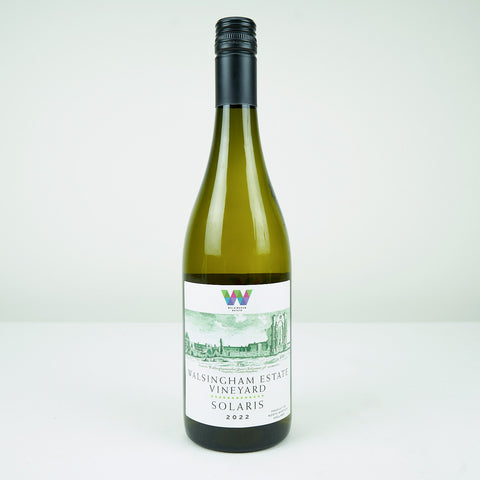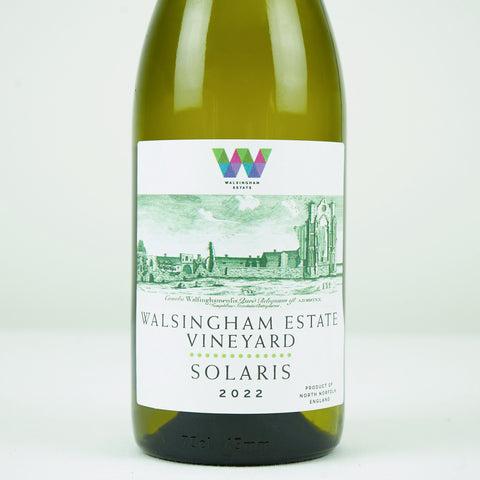




Walsingham Estate Vineyard - Solaris 2022
About the Vineyard:
Walsingham Estate Vineyard lies in the Stiffkey Valley, an easy walk to the south of Walsingham, close to the Roman Catholic Shrine at the Slipper Chapel and beside the former railway line which is now the Pilgrim Way. Part of the Walsingham Estate, the field was chosen for the vineyard as it is a gentle south facing slope, with free-draining soil studded with plenty of flint, above the all-important underlying bed of chalk. This same chalk seam runs all the way through south eastern England to Champagne, Chablis and Burgundy.
Planted in April 2019, 2022 is our first harvest and first vintage from our young vines. Our three grape varieties are two whites, Bacchus and Solaris, and one red, Pinot Noir.
The first harvest from a vineyard is always small but a very challenging start to the year with severe late frosts (with even a small frost on June 1) reduced our first yield even further, taking out probably about 1/3 of the potential grape clusters.
The hot dry summer - the drought in fact - meant grapes got very ripe but berry size and cluster size was small. There was also some bird and insect damage, probably because of high sugar levels in the fruit due to the heat, and also due to the drought reducing available water and food for wild creatures.
All grapes were hand harvested, with the total of our first harvest less than two tons. As a result supplies of the 2022 vintage are very limited!
Vintage:
2022
Grape:
Solaris
Solaris is a German variety developed in the 1970s. It was developed as a disease-resistant frost-hardy variety for more marginal climates. Solaris ancestry includes some well known varieties - Seyval Blanc, Riesling, and Pinot Gris (as well as the lesser-known Muscat-Ottonel and Zarya Severa). Our Solaris has established itself fast, with noticeable thicker trunks than the other varieties we have.
It develops huge bright green leaves, which means the grapes can attain high sugar levels, especially in hotter climates. For example in Germany it would mainly be used for sweet dessert wines. Solaris is grown a lot in Sweden apparently, where like us they make a dry wine from it. The vines produce large, heavy clusters that turn gold, even brownish-gold when fully ripe. In the vineyard the leaves stay green even when the other varieties’ leaves start to turn brown and fall.
Volume:
13%
Tasting Notes:
Partial malolactic fermentation produces a subtle yet creamy palate balanced well with acidity and subtle hints of sweetness. Delicate stone fruits merge with the oak and vanilla notes leading to a long finish.
Food Pairing:
Solaris goes really well with white fish and shellfish and perfectly with poultry served with cream sauces.

